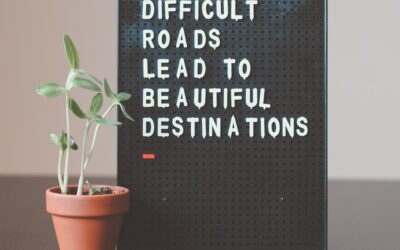- The Truth About Mindsets, And How They Quietly Shape Your Life
- Why Comparison Kills Confidence And What We Can Do Instead
- Suffering Is Not Strength. It’s a Signal
- Failing Forward: Why Failure Is Not the End. It Is Where Real Growth Begins
- Why Optimism and Pessimism Are the Same…If You Don’t Act
- The Real Reason You Are Not Starting (And Why You Never Will If This Does Not Change)
Table of Contents
Do you ever feel like you’re just not “one of those people” who gets it?
Like some folks were born talented, confident, or smart, and you’re just… trying to catch up? That quiet voice whispering, “You can’t do this” often doesn’t come from truth. It comes from mindset. And the good news? Mindsets can be changed.
Why this matters
Your mindset shapes how you deal with failure, feedback, success, and struggle. It determines how long you keep trying, how you view your potential, and how much joy you allow yourself to experience when you’re learning something new. Without understanding our mindset, we risk living a life built on invisible limitations.
Fixed vs. Growth Mindset: The Core Beliefs
A fixed mindset believes that abilities are innate and unchangeable. It avoids challenges, fears mistakes, and sees effort as a sign of inadequacy.
A growth mindset, on the other hand, sees failure as feedback. It values effort, asks, “Is this my best work?”, and believes intelligence and skills can be developed with time and practice.
Carol Dweck, the psychologist behind the concept, puts it like this:
“In a fixed mindset, people believe their basic qualities, like their intelligence or talent, are simply fixed traits. They spend their time documenting their intelligence or talent instead of developing them.”
People with a growth mindset tend to be more resilient, motivated, and persistent, even in tough times.
Mindset in Action: School, Work, and Daily Life
You’ve seen it at school: someone excels in math, and suddenly they’re seen as naturally smart. But we rarely ask: Did they study more? Get extra help? Come from a family that values learning? We treat performance as proof of innate ability, rather than a reflection of effort, context, and mindset.
This continues into adulthood. At work, in business, and in entrepreneurship, we compare salaries, titles, revenue. It becomes less about learning and more about winning. A fixed mindset thrives in this environment but at a cost.
The Cultural Cost of a Fixed Mindset
Fixed mindsets don’t just impact individuals. They reinforce harmful cultural beliefs. Research suggests they can fuel stereotypes, like the overrepresentation of white men as “inherently” scientific geniuses, which erases the contributions of diverse thinkers,
Worse, when we internalize these beliefs, we unconsciously shut doors on ourselves and others.
What the Science Says
According to research in Psychological Science, growth mindsets are associated with better learning outcomes because they help individuals reframe mistakes as opportunities:
“A growth mindset leads to an increased likelihood of learning from mistakes,” Moser and colleagues wrote in Psychological Science.
Neuroscience backs this up: your brain is capable of change well into adulthood through neuroplasticity. Practice, feedback, and effort literally reshape your neural pathways.
So, what can you do?
- Catch the inner dialogue. Is it fixed (“I’m just not good at this”) or growth (“I’m not good at this… yet”)?
- Reframe failure. Start seeing mistakes as part of learning, not proof of inadequacy.
- Practice self-compassion. Growth takes time. Be as kind to yourself as you’d be to a child learning to walk.
- Celebrate effort, not just outcomes. Especially in others. Tell someone, “I admire how much effort you put into this,” instead of only praising results.
A personal note
Moving forward
This week, notice where a fixed mindset might be quietly holding you back. And ask: What would I do differently if I believed I could grow here?






Very Insightful and to the point! Theodore Roosevelt said “Comparison is the thief of Joy”.
Rationally it only makes sense to compare yourself to… yourself from the day/month/year before. As you said we all have different backgrounds (genes, upbringing, resources and karma to deal with).
Growth mindset = learning mindset. I believe we are all here (on earth) to learn. This mindset allows to celebrate both successes and failures as amazing growth opportunities..
Can’t wait for more articles from you!